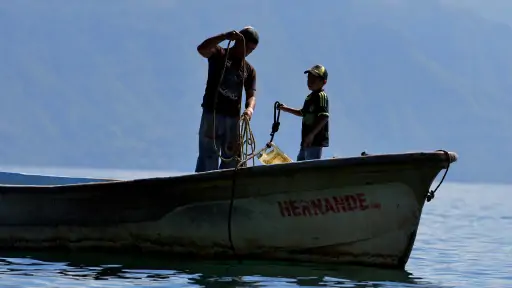Indigenous Calendar October, 2017: Standing Rock Day

When Columbus Day is celebrated a few days from now, more people will instead be celebrating Indigenous Peoples Day than last year. Portland, OR and Stanford, KY became the latest cities to make the switch just a few days ago. This month also marks United Nations Day — but that organization may be too busy with crises in Myanmar and North Korea to celebrate.
Waterworld is a 1995 film starring Kevin Costner. It is set in a future where the polar ice caps have melted and fresh water has become the scarcest of commodities. It was a critical and commercial disaster. Part of the reason may have been that the subject matter was ahead of its time. Global warming, environmental degradation and population sustainability were barely themes in our collective consciousness at the time. Even the United Nations did not have those topics on its radar.
Dances with Wolves is a 1990 film also starring Kevin Costner. It was a critical and commercial success. Part of the reason may have been that it was the first film of its genre to portray an indigenous, North American people (the Sioux) as human beings. Too historically inaccurate to use as anthropological reference, it demonstrated that, had it existed at the time, the United Nations would have been as ineffective at protecting indigenous people as it is today.
I didn't see the connection between these two films until last year. On the surface they couldn't be any more different — one has a fictional, futuristic theme that many cannot relate to even today; the other is historical drama that many found themselves relating to even though it was set over a hundred years in the past. I wouldn't be surprised if you didn't see the connection that emerged a year ago. It came from a story that is not fictional and was, initially, hardly covered by the mainstream media. I'm referring to the protest led by the Standing Rock Sioux against the completion of the Dakota Access oil pipeline. It ended unsuccessfully: oil is flowing through that pipeline now. But the struggle is not over. The protest has moved from the construction site to the courtroom.
A year later we can begin viewing the protest in historical context. The response from both indigenous and non-indigenous people alike was an overwhelming example of solidarity. The indigenous peoples of North America in particular — sometimes called nations — became united like never before in history.
In Guatemala we can see what could be the ultimate example of the importance of fresh water. On Lake Atitlan this Kaqchikel man was preparing for a day of fishing with his son. The Kaqchikel are a post-Classic Maya people and it is no coincidence that they settled near an abundant supply of fresh water. Lack of water played possibly the largest role in the decline of the Maya Empire.
In Dances with Wolves Costner's character befriends and ultimately integrates into a Sioux community. In Waterworld we get a vision of what life might be like if land and fresh water become too depleted to support our survival. It is time for Hollywood to make a film about the Dakota Access oil pipeline. It could be a sequel to Dances with Wolves as well as a prequel to Waterworld. The 24th of this month is United Nations Day. I suggest we rename it Standing Rock Day to recognize that the indigenous peoples of North America show us what united nations actually look like.
The Kaqchikel Maya are featured in our documentary, Ancient and Modern Mayan Peoples.
If you enjoyed reading this article, please consider supporting independent, advertising-free journalism by buying us a coffee to help us cover the cost of hosting our web site. Please click on the link or scan the QR code. Thanks!


